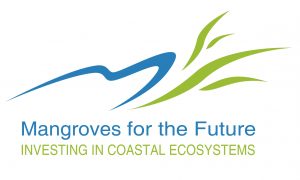Organizations
Fisheries Action Coalition Team (FACT)
The Fisheries Action Coalition Team (FACT) is a coalition of non-governmental organizations (NGOs) in Cambodia established in 2000. FACT manages and coordinates many different NGOs and community-based organizations to ensure that the implementation of environmental sustainability programs is done effectively. Their aim is to protect fisheries and other natural resources in the Tonle Sap Lake, as well as other nearby Cambodian marine regions. FACT also monitors governmental policies and policy changes with regard to conservation. They are currently partnered with various national and international organizations, and have worked with the Global Nature Fund to conserve the Tonle Sap Lake.
International Union for Conservation of Nature
The International Union of Conservation of Nature (IUCN) is a global membership union established in 1948, consisting of various government and civil city organizations. It is one of the world’s most diverse environmental networks, and works to empower global conservation efforts through the provision of the tools and knowledge needed for environmental conservation. IUCN Cambodia has led various projects for the conservation of the Tonle Sap Lake.
From 2013 to 2016, IUCN Cambodia worked with FACT on a project titled “Strengthening capacity of fishing communities in the Tonle Sap to manage their natural resources sustainably”. The project entailed addressing the issues surrounding the lake as a result of overfishing, deforestation, upstream hydropower development and climate change. IUCN and FACT worked with the local community and authorities to establish fish conservation areas (FCAs) on the lake. The FCAs are areas where fish gather in the dry season, and they were established to protect these fish. These FCAs became operational in 2015, leading to a substantial improvement in the amount of fish spawned and caught for the locals’ livelihood. With an increased fish stock, other animal species that feed on the fish began appearing on the lake, such as otters and water birds.
However, one problem faced was that of illegal fishing and the use of illegal fishing methods. To address this, IUCN and FACT worked with the local communities and authorities to monitor the fishing activities, and confiscate and destroy illegal fishing equipment. The locals even paid for half the cost of boat fuel needed to patrol the lake, and erected additional poles around the FCAs. The poles served to both attract more fish and deter illegal fishing by trapping illegal fishing nets and slowing traffic on the lake. This has contributed significantly to the success of the project.
Mangroves for the Future (MFF)
Mangroves for the Future (MFF) is a partner-led initiative aimed at coastal ecosystem conservation. It is co-chaired by IUCN and the United Nations Development Programme (UNDP). MFF Cambodia has been involved in the planting of mangrove trees, and in the training of the local community in sustainable farming as a suitable, alternative source of livelihood to fishing (thereby reducing overfishing). MFF Cambodia has also had projects involving the installation of manure-powered biogas reactors. These reactors act as a sustainable fuel source, reducing the need to obtain firewood via logging of mangrove forests.
Global Nature Fund (GNF)
The Global Nature Fund (GNF) is a non-profit international foundation, founded in 1998 with the objective of environmental protection. The GNF has had projects aimed at conserving the Tonle Sap Lake and its flooded forests. In 2012, the project “Mangrove Restoration in Asia” was implemented at the Tonle Sap Lake. The project involved cooperating with FACT to plant (native) mangrove seedlings in nurseries and using them to restore the mangrove forests. Another project, “Promotion of Sustainable Fishery and Eco-Tourism”, was aimed at reducing the negative impacts on the lake biodiversity. This project involved replacing non-sustainable fishing methods (cyanide, dynamites) with sustainable ones. The project also created environmental clubs, recruiting 50 fishermen to educate them about sustainable fishing methods, as well as possible sustainable eco-tourism strategies.
Wildlife Conservation Society (WCS)
The Wildlife Conservation Society (WCS) is an organization founded in 1895, and currently works to conserve many areas and wild animals wolrdwide, including the Tonle Sap Lake. The WCS currently works with the Cambodian government and the Ministry of Environment (MOE) to conserve threatened water bird species living in the mangrove forests around the Tonle Sap Lake, and in the Tonle Sap floodplains. The WCS was also involved in the Tonle Sap Conservation Project (2004 – 2011), which was aimed at improving the capacity for biodiversity management, monitoring biodiversity management, and promoting environmental awareness and education on biodiversity conservation.





Recent Comments